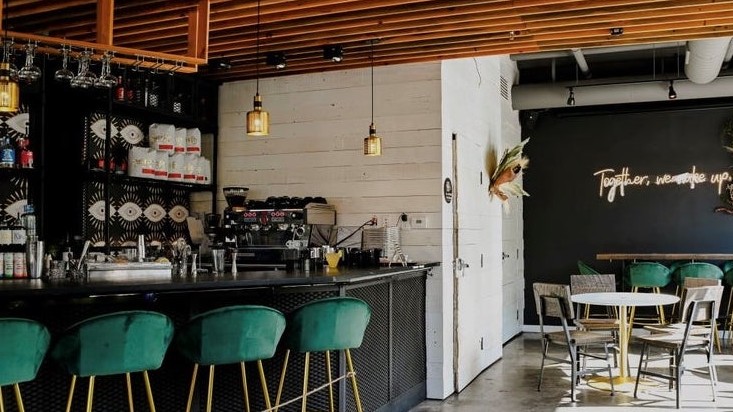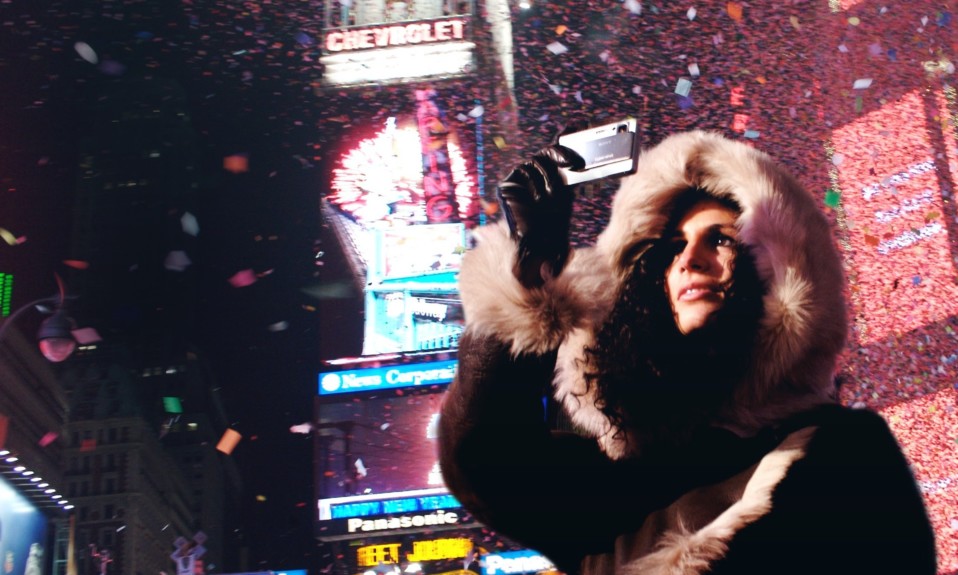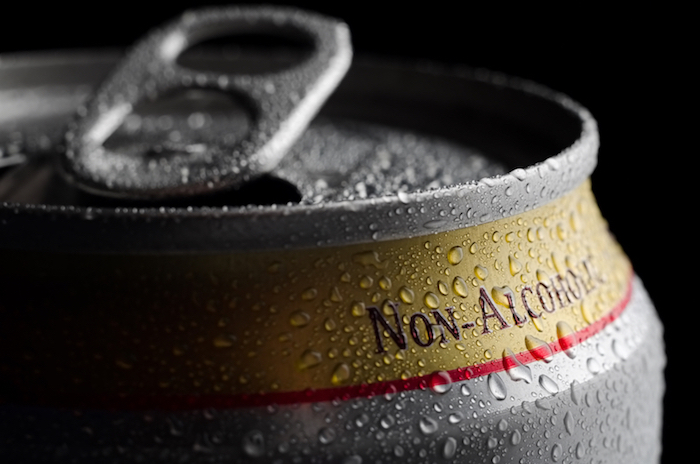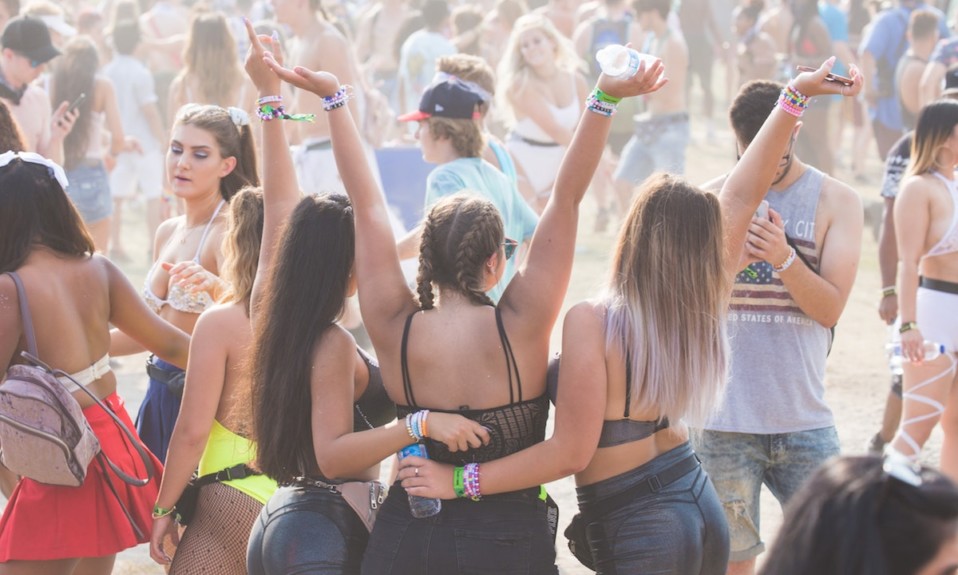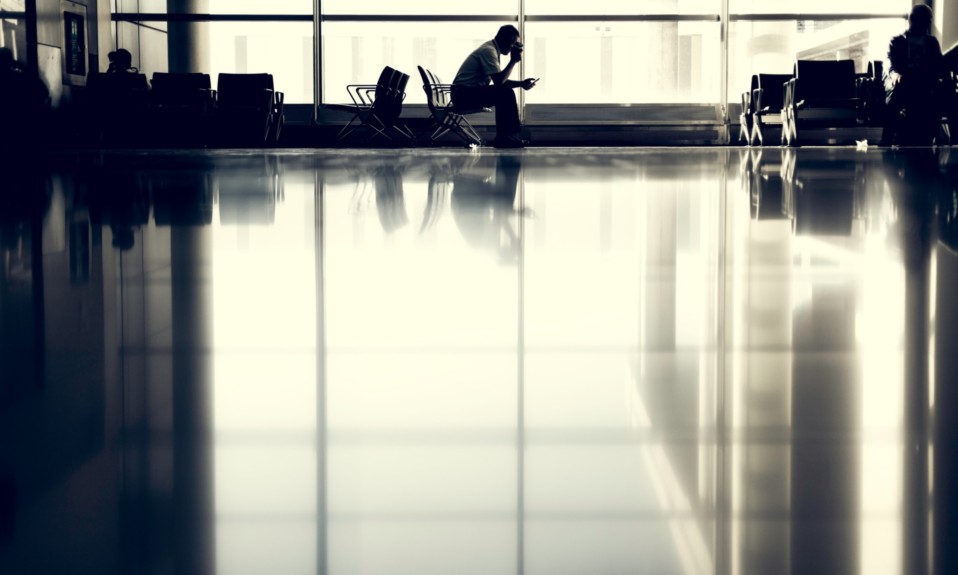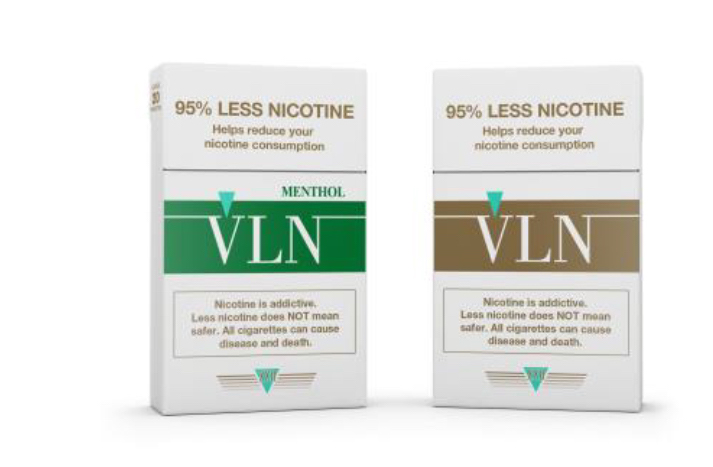Alcohol-free bars are growing in number and popularity, providing those who are sober, in recovery or just want a booze-free night with a place to connect
By Veronica L. Holyfield
While people maintain sobriety for a variety of reasons, the demand for spaces to enjoy nightlife minus the booze is growing. Whether it be bar atmospheres that substitute alcohol for NA options but don’t sacrifice style, community resource hubs that host recovery-related events, or brands that center on a holistic lifestyle, folks are speaking up and showing up to support the niche market of sober partying.
Gaining traction across the country, abstinence from mind-altering substances is becoming the cool thing to do, and innovative business concepts are on board with the paradigm shift. Here are some of their stories.
Awake in Denver
On a mid-November weekend night in the Colorado capital, the streets bustle with energy and boisterous activity that is both unrestrained and stimulating. Groups of people seek shelter from the chill of the crisp evening inside bistros, pubs and cocktail lounges, where they let inhibitions loose with laughter and libations. The social hour has begun, and with that comes the flow of drinks.
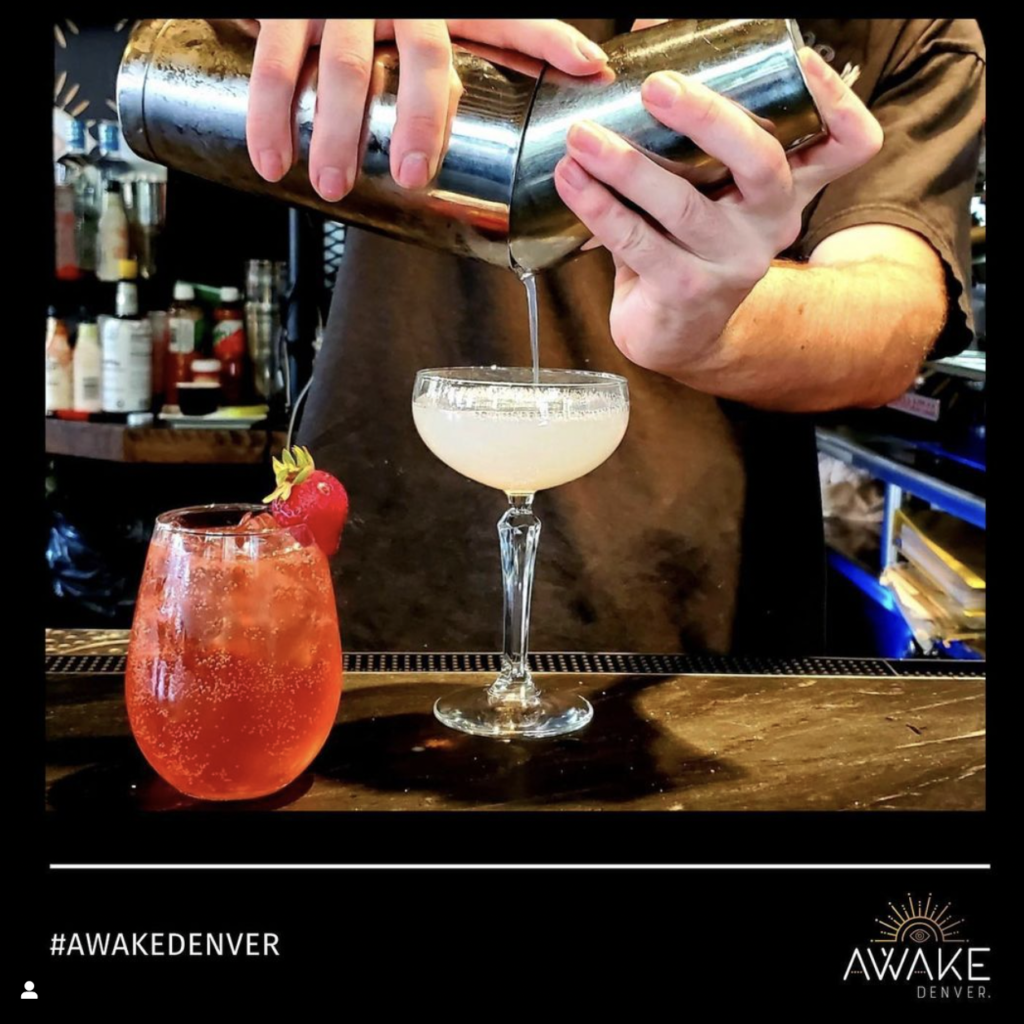
While the majority of good-time destinations revolve around alcohol, one Denver hotspot offers a provocative twist on the activities of the witching hour: Awake Denver Sober Bar and Coffee House is one of the first full-service alcohol-free bars in the United States.
Awake opened in the spring of 2021 to provide a space for those who want to enjoy socializing, entertainment and excitement while consuming non-alcohol-based beverages. With a warm and loungey ambiance, the brick-and-mortar spot exudes a hip vitality. As a sober bar, Awake offers a menu that’s up for grabs to anyone who maintains an alcohol-free life or simply wants an alcohol-free night.
“We started with the principle that we are an alcohol-free bar,” says co-founder Billy Wynne. “I think people like me who don’t drink want to have a place they can go relax and socialize, maybe bring a spouse or a date, and enjoy themselves like they used to when they drank.
“We’re very interested in developing the community feeling, the joyfulness, the kind of excitement that a bar can create, but removing alcohol.”
It was as though there was a pent-up demand in the sobriety community that needed and wanted a place to go.”
—Billy Wynne, co-founder of Awake
Wynne is pleased with the inclusive space he and his wife and co-founder, Christy, have created for those looking for a liquor-free experience. Folks who are consciously sober now can enjoy socializing freely and commune with others in a bar setting while no longer feeling unwelcome or unwanted.
Awake feels like most other bars, with a walk-up counter to order mixed mocktails, a full wall behind with pristinely lit bottles of zero-proof liquor, a gorgeous menu of appetizers and snacks, and an extensive beer, wine and NA spirit collection. While Wynne is acutely aware that the atmosphere may be triggering for some who are in recovery from addiction, he believes that their niche spot is filling a much-needed gap in the nightlife scene.
“While we pride ourselves as being the first alcohol-free, full-service bar in the country, we really had no idea what the reception would be,” Wynne says. “There were, and continue to be, a lot of skeptics, but it works. We’re getting very positive feedback; people are very pleased to have this option. It was as though there was a pent-up demand in the sobriety community that needed and wanted a place to go.”
A Liberating Feeling
One of those people looking for such a place was Debbie Scheer. The Denver-based emcee and comedic entertainer found that the transition out of her social group was one of the more trying aspects of her early sobriety. The challenge of getting sober is often compounded by the need to shift personal relationships, to create distance from the drug of choice and separate from those who are still using.
“One of the biggest things I’ve had to grieve, to be honest, was the loss of friendships, or they’ve changed in such a way that it’s not something that we pursue,” Scheer says. “And that’s tough. While I know there is beauty and light in realizing that was maybe the depths of our relationship, it’s still a grieving process.”
To walk into a space that was designed for sober people and people who support sober people, it’s refreshing and empowering.”
—Debbie Scheer, Denver
That’s where Awake comes in. Scheer, who has been sober for more than three years, now has a place to gather with other non-drinkers, whether for an afternoon meeting over coffee or a queer happy hour over mocktails. She says it’s been liberating to have a place that prioritizes the unique social needs of those who don’t drink.
“It finally feels like sober people are given the respect and the visibility that we deserve and crave,” she says. “When you go to a typical bar and you want something that is non-alcoholic, you may get a choice of one beer, soda or juice, or water. And yes, they could probably now make you a mocktail. But to walk into a space that was designed for sober people and people who support sober people, it’s refreshing and empowering.”
On the Other Side in Illinois
In 2011, Bobby Gattone was newly sober and looking for a safe place to connect with other sober people and have a good time. He lived near Crystal Lake, Ill., outside of Chicago, so it was suggested to him that he check out a spot in town called The Other Side, a music venue with a “party sober” atmosphere where folks could see live music, dance and celebrate life in recovery. Gattone describes his experience:
“I was about eight days in and so shaky and detoxing, and this guy brought me to this thing after the meeting; it was essentially a warehouse space, and it was packed with people. There was a DJ; there were people drinking energy drinks; there were people in the front that were talking to a sponsor about step work. It was like a dance party, and people were having a blast. To be honest, my first thought was, There’s no way these people are sober. That night, I met a bunch of people, including Chris Reed, who owned the building and started the whole thing, and the people I met that night are still friends of mine today.”
Gattone joined The Other Side’s board of development and watched the space evolve from a music venue and sober bar into a genuine community resource hub. Brainstorming more ways to meet other needs in the community, the board formed the nonprofit New Directions Addiction Recovery Services, folding The Other Side into a variety of addiction and recovery programs.
Since 2016, New Directions has opened five sober living facilities, assumed operation of the nearby PADS homeless shelter, and run McHenry County’s A Way Out program, which works with the police and emergency rooms to offer recovery services to those looking for help with substance use disorders. While the original Other Side location closed during the pandemic, a new site is being renovated, with plans to re-open the bar and provide a coffee shop and music venue once again.
What we’re hoping to create is what we had that helped us stay sober early on: a thriving community of people that are really looking out for each other and makes recovery look really attractive.”
—Bobby Gattone, executive director, New Directions Addiction Recovery Services
In the meantime, The Other Side is using the new space for recovery-related programming to create a friendly and safe spot for those who are sober due to substance use issues. When the entertainment space reopens, The Other Side, unlike Awake, will steer clear of mocktails, NA beer and zero-proof wine, as a way to avoid triggering those who may be struggling.
“We’ll be opening evening hours especially geared towards young people in recovery, where we’ll have comedy nights, drag shows, karaoke, open mics, have football games on for people to hang out and watch, as well as harm reduction, Naloxone training, stuff like that,” says Gattone, now executive director at New Directions. “What we’re hoping to recreate is what we had that helped us stay sober early on: a thriving community of people that are really looking out for each other and makes recovery look really attractive.”
Sober-Curious at Sans Bar
When Chris Marshall stopped drinking at 23, the Austin, Texas, native thought his social life was over. He was lucky enough to have people around him who supported his early sobriety, and he went back to school to become a substance use counselor, working in the treatment industry for nearly a decade. As he coached and guided those in recovery, he couldn’t help but be bothered by the rate of recidivism within the addiction community.
Baffled by the way his industry peers were comfortable with the high instances of relapse and program recidivism, Marshall wondered how he could make a direct impact, helping those who had few options for things to do and places to go once they left treatment or the clinical setting. Starting with sober pop-up events in 2017, Sans Bar was born, focusing on creating spaces for deep and meaningful connections centered on booze-free beverages.
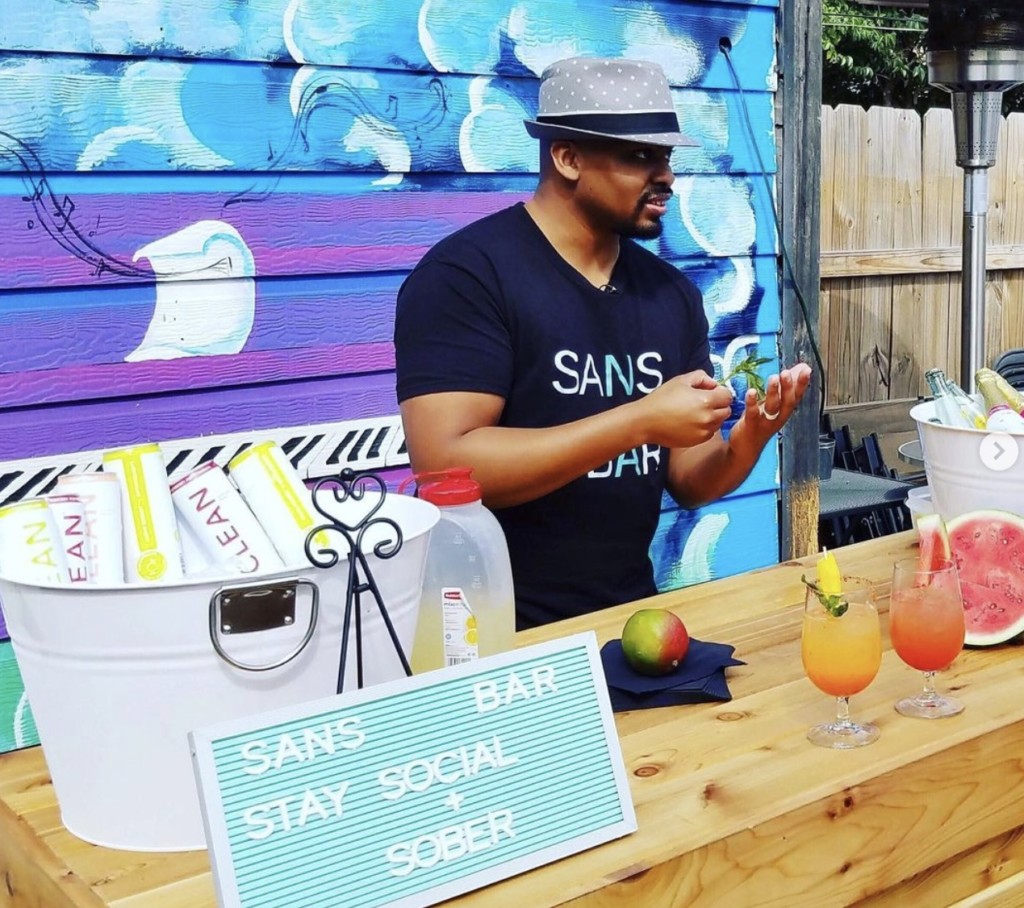
Marshall was at the early stages of what has now become a more popular movement: an alcohol-free lifestyle that’s not just for those who have addiction-related issues. But whether it was sober-curious or sober-serious, even just five years ago the scene was fraught with stigma around not drinking. Marshall set his expectations for Sans Bar low.
“I didn’t expect it to be around very long; there wasn’t quite the market for it just yet,” he says. “The pop-up model worked for me because it helped me to grow my business skills, but also helped to build an audience that would support investing in a physical space. That to me was the biggest advantage, because I needed to know that there were going to be people who showed up. The pop-up grew from literally six people at the first one to then we were seeing 80 to 100 people at our events by 2018. We knew we were on to something.”
The whole idea is that there’s just not alcohol around, and people who are just not drinking for the night, for whatever reason, find it to be the perfect balance of what they’re looking for.”
—Chris Marshall, Sans Bar
Sans Bar opened a permanent space in Austin in 2018 and has been thriving ever since. Marshall even takes his show on the road, with more than a dozen alcohol-free Sans Bar events scheduled in cities across the country in 2022.
“The last time we did a survey at the bar, we saw that about 75% of people that come into Sans Bar do not identify as in recovery—they identify as sober-curious or sober-sometimes,” Marshall explains. “The whole idea is that there’s just not alcohol around, and I think that people who are just not drinking for the night, for whatever reason, find it to be the perfect balance of what they’re looking for.”
Getting Grüvi with NA Drinks
One of the non-alcoholic brands that Denver’s Awake serves is Grüvi, a lively, energetic line of craft beer and wine that is zero-proof. Strong and robust in body and bold in flavor, the healthy brews are a fresh, tasty equivalent to their five- to nine-percent ABV counterparts.
Siblings Anika and Niki Sawni grew up in a family that was active and health-focused, and often questioned the role that alcohol played in their health-conscious lifestyle. As young people of college age, the Sawnis often felt they had to choose between being social and consuming alcohol, or staying home and remaining sober. They came up with Grüvi to resolve the dilemma.
A family-owned and -operated business, Grüvi’s mission is to create an inclusive community that doesn’t revolve around drinking alcohol, and to change the stigma around NA beverages. Seeing a need to dispel the notion that alcohol-free beer and wine are boring and bland, the Sawnis feel inspired to shift the narrative.
“We found that the category was very underloved and very stagnant,” says Anika. “It has been around for a long time, but there was a lack of innovation and a strong stigma, which is still there. We’re working to battle that and educate people around non-alcoholic options.”
Anika says that over the last two and a half years Grüvi has been in business, the vibe around alcohol-free beer and wine has shifted from What’s the point? to folks embracing socializing sans the hangover. Now the buzz can be about the experience of the beverage rather than from its effects.
Another personal motivating factor for Anika is health. A neuroscience and psychology student in college, she researched the effects of alcohol on the brain, as well as the impact of addiction, and feels proud that she and her brother can provide a product that is beneficial to mental health and well-being.
When you stop drinking alcohol, you don’t want to stop living and lose a whole section of your life. Creating these kinds of inclusive spaces is going to be what helps move the category forward.”
—Anika Sawni, Grüvi
In addition to their products, Grüvi has opened a tasting room for people to get together, sip NA beer and wine and truly enjoy the experience of connection over drinks. While COVID has provided quite the learning curve for the brand, Anika says that it was worth the work, and the community has been providing extremely positive feedback.
“I think we’re seeing more and more of this kind of concept,” Anika says. “There’s a few, not many in the whole country, that are completely alcohol-free bars, but the need is there.
“That’s the biggest drawback—when you stop drinking alcohol you don’t want to stop living and lose a whole section of your life. So creating these kinds of inclusive spaces is going to be what helps move the category forward as a whole.”
Photos: Instagram


